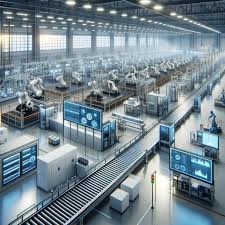Mastering the Art of Content Creation Marketing: Strategies for Success
The Power of Content Creation Marketing
In today’s digital age, content creation marketing has become a crucial strategy for businesses looking to connect with their target audience and drive engagement. With the vast amount of information available online, creating high-quality and relevant content has never been more important.
Content creation marketing involves the process of planning, creating, and distributing valuable content to attract and retain a clearly defined audience. Whether it’s blog posts, social media updates, videos, infographics, or podcasts, businesses can leverage various forms of content to engage with their audience and build brand awareness.
One of the key benefits of content creation marketing is its ability to establish businesses as industry leaders and experts in their field. By consistently producing informative and valuable content, businesses can showcase their knowledge and expertise, earning the trust and loyalty of their audience.
Furthermore, content creation marketing can help businesses improve their search engine visibility. Search engines like Google value fresh and relevant content, making regular updates an essential part of any successful SEO strategy. By creating keyword-rich content that resonates with your target audience, you can improve your website’s ranking in search results.
Another advantage of content creation marketing is its ability to drive organic traffic to your website. When you create compelling and shareable content, you increase the likelihood of it being shared on social media platforms or linked to by other websites. This not only boosts your website’s visibility but also helps expand your reach to new potential customers.
Overall, content creation marketing is a powerful tool for businesses looking to connect with their audience in a meaningful way. By producing valuable and engaging content that resonates with your target market, you can enhance brand awareness, establish credibility, improve SEO rankings, and drive organic traffic to your website.
Understanding Content Creation Marketing: Key Questions Answered for Business Success
- What is content creation marketing?
- Why is content creation marketing important for businesses?
- How can businesses benefit from content creation marketing?
- What are the different types of content used in content creation marketing?
- How does content creation marketing help improve search engine visibility?
- What role does social media play in content creation marketing?
- How can businesses measure the effectiveness of their content creation marketing strategies?
What is content creation marketing?
Content creation marketing is a strategic approach that involves the planning, development, and dissemination of valuable and relevant content to attract and engage a specific target audience. This form of marketing focuses on creating various types of content, such as blog posts, social media updates, videos, infographics, and podcasts, with the aim of establishing businesses as industry leaders and experts in their field. By consistently producing informative and high-quality content, businesses can build trust with their audience, improve search engine visibility, drive organic traffic to their website, and ultimately enhance brand awareness and credibility.
Why is content creation marketing important for businesses?
Content creation marketing is vital for businesses because it allows them to connect with their target audience in a meaningful and engaging way. By producing high-quality and relevant content, businesses can showcase their expertise, build trust with their audience, and establish themselves as industry leaders. Content creation marketing also plays a crucial role in improving search engine visibility, driving organic traffic to websites, and boosting brand awareness. In today’s competitive digital landscape, businesses that invest in content creation marketing are better positioned to attract and retain customers, drive engagement, and ultimately achieve long-term success.
How can businesses benefit from content creation marketing?
Businesses can benefit significantly from content creation marketing in several ways. Firstly, by producing high-quality and relevant content, businesses can establish themselves as industry experts and build credibility with their target audience. This helps in fostering trust and loyalty among customers, ultimately leading to increased brand recognition and customer retention. Additionally, content creation marketing can improve a business’s search engine visibility through regular updates of keyword-rich content, driving organic traffic to their website and boosting SEO rankings. Furthermore, sharing valuable content across various platforms can enhance brand awareness, expand reach to new audiences, and drive engagement with potential customers. Overall, content creation marketing is a powerful strategy that allows businesses to connect with their audience effectively and achieve long-term growth and success.
What are the different types of content used in content creation marketing?
In content creation marketing, businesses utilise a variety of content types to engage with their audience and deliver their message effectively. Some common types of content used include blog posts, articles, infographics, videos, podcasts, social media updates, e-books, case studies, whitepapers, webinars, and email newsletters. Each type of content serves a specific purpose in reaching and resonating with the target audience. Blog posts are great for sharing insights and updates regularly, while videos and infographics can visually communicate complex information in an engaging way. E-books and whitepapers provide in-depth knowledge on specific topics, while social media updates help maintain an active presence and interact with followers. By leveraging a mix of these content types strategically, businesses can create a well-rounded content marketing strategy that drives engagement and builds brand loyalty.
How does content creation marketing help improve search engine visibility?
Content creation marketing plays a vital role in enhancing search engine visibility by providing fresh, relevant, and keyword-rich content that aligns with the interests and needs of the target audience. Search engines like Google prioritize websites that regularly update their content with valuable information, making content creation a key component of any successful SEO strategy. By producing high-quality content that incorporates relevant keywords and addresses common search queries, businesses can improve their website’s ranking in search results, attract organic traffic, and ultimately increase their online visibility to potential customers actively seeking their products or services.
What role does social media play in content creation marketing?
Social media plays a crucial role in content creation marketing by providing businesses with a platform to distribute and promote their content to a wider audience. With billions of active users on various social media platforms, businesses can leverage these channels to share their content, engage with their followers, and drive traffic to their website. Social media also allows businesses to interact directly with their audience, gather feedback, and gain valuable insights into what resonates with their target market. By incorporating social media into their content creation strategy, businesses can enhance brand visibility, increase engagement, and ultimately achieve their marketing goals more effectively.
How can businesses measure the effectiveness of their content creation marketing strategies?
Measuring the effectiveness of content creation marketing strategies is vital for businesses to understand the impact of their efforts and make informed decisions for future campaigns. One common way to measure effectiveness is through key performance indicators (KPIs) such as website traffic, engagement metrics, conversion rates, and social media shares. By tracking these metrics, businesses can evaluate the reach, engagement, and conversion rates of their content to determine what is resonating with their audience and what may need adjustment. Additionally, conducting A/B testing, analyzing customer feedback, and monitoring return on investment (ROI) can provide valuable insights into the success of content creation marketing strategies. By continuously monitoring and analysing these metrics, businesses can refine their content strategies to achieve better results and drive meaningful outcomes.










